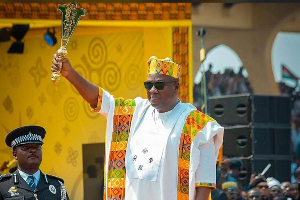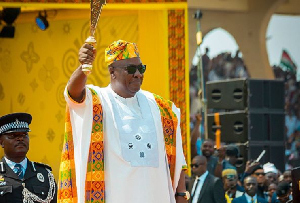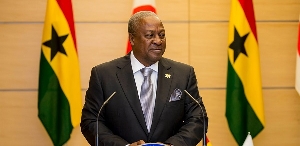With the current stalemate in Parliament, it appears that the tenure of the 8th Parliament of the Fourth Republic will end without an amendment to the Petroleum Revenue Management Act (PRMA).
This law governs the management of mineral resources in Ghana, with oversight by the Public Interest and Accountability Committee (PIAC).
Mineral resource experts have highlighted several anomalies in the implementation of the Revenue Management Act.
“An example is that they created PIAC but failed to provide funding for the Committee,” said Nasir Alfa Mohammed, a former PIAC member, while providing updates on developments in the upstream oil and gas sector.
“For five years, PIAC was at the mercy of international donors...We now have funding support because of the amendment to the PRMA in 2015,” he said.
“However, there are still many anomalies that need to be addressed,” Mr. Mohammed indicated, noting that some stakeholders have concerns about implementation and would have raised them if Parliament were in session.
“Many of these issues could have been reviewed, and we could have reached agreements on certain commonalities in amending the Act.”
Resolving these anomalies would go a long way toward enhancing the country’s mineral revenue management regime.
According to PIAC, the total number of petroleum agreements as of June 2024 stands at 14.
National Energy Transition Framework:
On clean energy, Mr. Nasir Mohammed disclosed that a “process has commenced to secure a one-million-euro grant from the United Nations Office for Project Services (UNOPS) for a grid feasibility study to increase the uptake of clean energy, following the establishment of the National Energy Transition Framework and Investment Plan.”
In the clean energy debate, industry players in Ghana are advocating “energy progression” in the National Energy Transition Framework and Investment Plan.
Business News of Wednesday, 13 November 2024
Source: gbcghanaonline.com

















